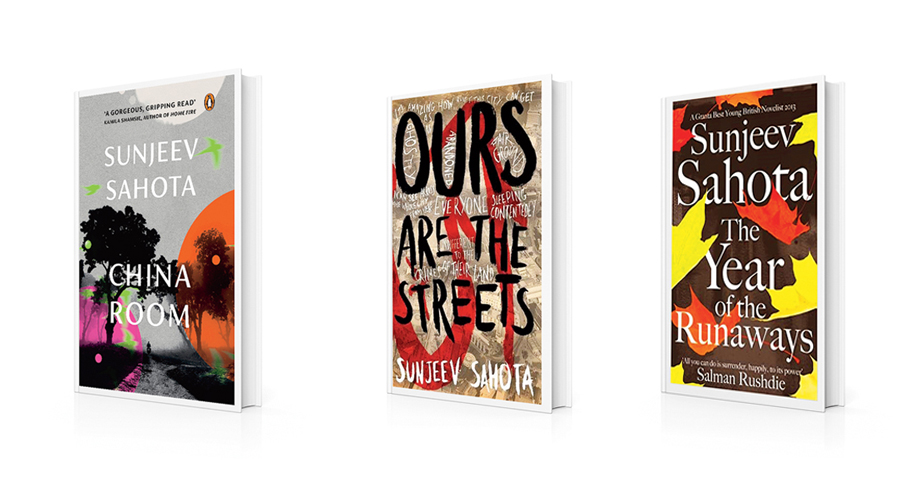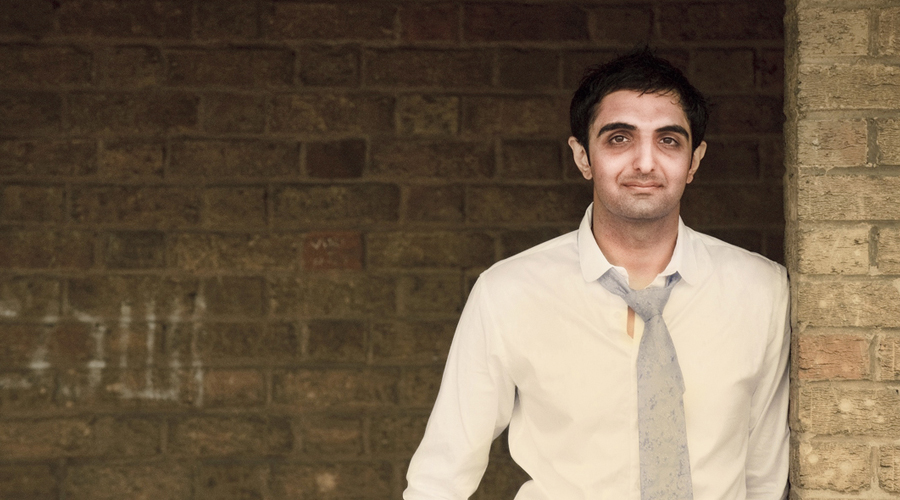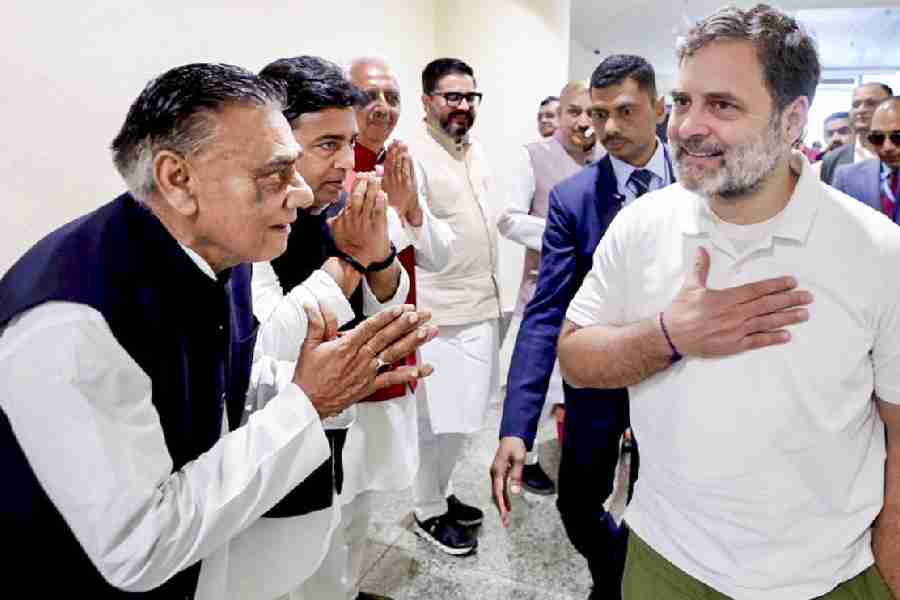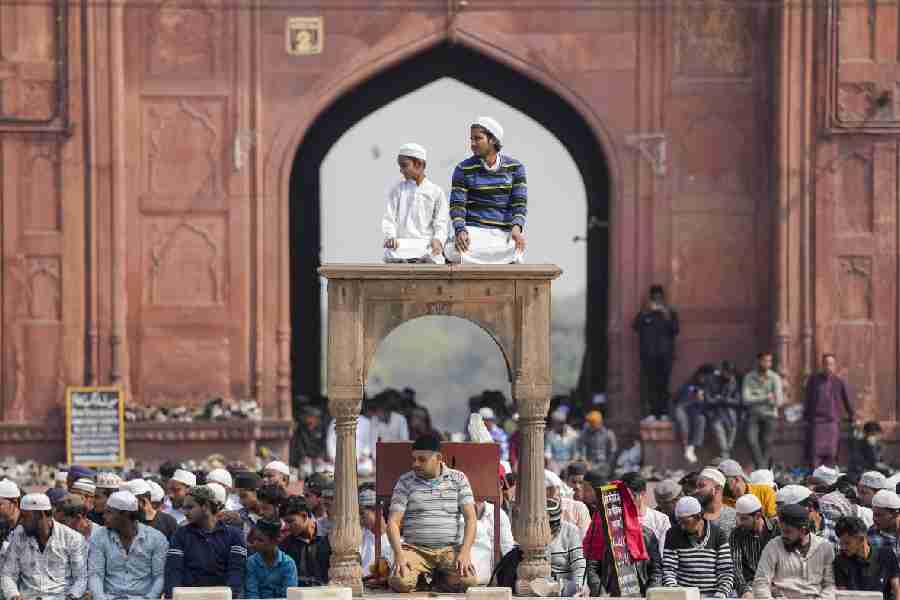Not having read a novel till the ripe age of 18 is not a claim many authors can make –– most definitely not a Man Booker-nominated one. However, a flight to India from his home in the UK and the chance buying of Salman Rushdie’s Midnight’s Children opened up a brand new world for author Sunjeev Sahota who has been compelled to narrate the intriguing tale of the genesis of his writing career at every interaction. His first novel was Ours Are The Streets in 2011, which he followed up in 2015 with The Year Of The Runaways. More than half a decade later, his latest novel China Room(Hamish Hamilton; Rs 599), which releases in India tomorrow, encounters the author grappling with ideas of belonging and escape –– both inwards and outwards.
A multi-generational tale of India in the 1920s and now, China Roomis the story of Mehar, a young girl who lives in a small room with two other women she considers her sisters, who are married to the three sons of Mai –– the matriarch of the family –– except none of them knows which of the three sons she is married to. That predicament helps them forge a bond through their common distress in an electricity-less household where a dark night of copulation is faceless and orchestrated by Mai. While the lack of this knowledge forms the central conflict of this novel, Mehar’s London-resident great grandson’s recovery from heroin addiction, while taking shelter in Amritsar, forms the parallel narrative. As the young fellow takes shelter in the very China Roomthat Mehar spent her days locked up in, their emotional turmoils collide in a subtle space that transcends time. As both characters grapple with their sense of belonging, while trying to escape their lived realities in search of ‘home’, the non-linear narrative portrays an urgency that is unparalleled. The last page of the book contains a picture of the two generations meeting, that affords a perfunctory flourish of an ending to the novel. The Telegraph rushed through the book overnight before getting on a Zoom call with the author to discuss his explosive third novel. Excerpts.
Do tell us about the journey from never having read a novel to actually writing one. How did the former form an impetus for the latter?
My household wasn’t a very bookish one and my arrival to reading was quite late. I was 18, on my way to India the summer before university, when I picked up my first novel and realised it was something I could derive a lot of meaning from. It just made sense to me –– the intimate connection between a reader and a writer really started speaking to me. I was exclusively reading novels and couldn’t stop the reading races once it had begun. I slowly found myself asking questions –– why was this book put together, why did the writer write this a certain way –– and when you start to ask yourself such mechanical questions do you find yourself starting your own novel. I was 25 when I started writing my book and just carried on from there.
What is your writing process like?
It’s a very slow process involving a lot of thinking beforehand, waiting for an idea that really sticks. This could be a situation or a question that I am pondering. My first novel, for instance, was about a person very similar to me, son of immigrants, brought up in the north of England in a quiet, working-class family and what would drive such a person to commit an act of terrorism. I read about some bombers in London who had similar backgrounds as mine and yet they did something that is so divorced from anything I would ever think of or imagine to do. So my second book was just looking at questions on immigration, which forms a deep part of my history and trying to look at what life is like for largely men and some women who come over to the West and the difference between their expectations and the reality. With my third book, it was this family legend of my great grandmother that was vague and invited exploration. The common thread in all my books is people seeking connection or freedom or liberation.
Once I have the idea, it’s after I have thought about it for quite a while, taking wrong turns, writing, starting again, spending time with the structure of the book (that I start writing). The writing seems to come a bit more easily once I have the narrative structure that holds the novel together. I write about four hours a day, regardless of inspiration. Some days are better than others and I write from 10am to 2pm, when the kids are at school.

China Room releases tomorrow. It’s Sahota’s third novel after Ours Are The Streets (2011) and The Year Of The Runaways (2015)
Speaking of structure, Mehar’s story is formed of short crisp chapters while the young boy’s story forms more detailed, longer sections. Why did you choose this narrative structure?
One of the concerns of the book is questions of fathership. There is a question that runs throughout the book, which is who gets to tell Mehar’s story and how the story gets told. Is it the young man narrating the story from his starting point in 2019? Is he writing it? Because that question is quite alive, it was quite important that her story feels like a construction. There are short chapters that kind of zoom into the important points in her story. It is also in the present tense, which was very important to me because it points to not only her trauma but also the trauma to come in the later years in the life of her great-grandson. Her stories are thus written that way because there is a sort of myth-making going on. I needed to be true to that dream-like quality. Whereas, the young man’s story is candid, in first-person narration and, because it’s a different kind of trauma, one that is alive and co-existing with him, it had to be written in a kind of auto-fiction manner. So, it starts in 2019 and he is writing back.
Except for the one scene where the very same house is getting painted many years apart, you have consciously chosen to abstain from drawing direct parallels between the two stories. Yet they are tied together by a common emotional thread. What are the choices that you had to make and the reasons behind the choices?
You are right, except for the painting of the house, there are only very subtle parallels going on between the two stories. He would stumble upon a broken shard of a plate that was used before. They are always surrounded by the China room, so that too kept recurring. I didn’t want him to go searching for his great grandmother’s history or to find out what really happened. I didn’t want him to find his sense of recovery as a result of Mehar’s trauma. I wanted Mehar’s trauma to exculpate or explain his recovery. If he went out in search of her story, that would mean that her trauma is somewhat justified while he uses that to become better. I was really conscious and I didn’t want that to happen. I wanted to add subtle delicacy and nuance to the parallels and how these stories are woven together. I thought it would be a more beautiful book that way. The book is structured like a spiral with it starting off with longish chapters and they slowly start coiling around each other and they wend with that photograph where they come together.
All your books are tied together by a social commentary or rumination of sorts. Do you think it is imperative for a piece of fiction to have that quality?
No, I don’t think fiction needs to have any social purpose. I think they need to have a static purpose. They should be edifying –– reading fiction should take you out of yourself and enlarge your sympathies in some way. Inevitably they will have a moral purpose because all writers have a moral compass that shows in their work. But I don’t think they should be instructive or a guide to how to live. They can be comical, strange, confounding, beautiful, or confusing. An enlargement of the soul I suppose is what a novel should do rather than having any sort of narrow social goal.
Tell us about your relationship with India.
I am fluent in the language and I am aware of the political backdrop of the country. I am Punjabi and I used to spend a lot of time in the country before the pandemic. Partition played a big part in my family as they had to flee what became Pakistan after Independence. It’s a part of history that I have always been reading about.
I miss India and I haven’t been there in four years! I still have a large family there. I just love walking around in India. Even though I speak the language fluently, there is something great about being able to just walk around and not understand everything that everyone is saying. There is a lovely feeling of freedom there. I miss the noise and peace I get walking around my family village. Everyone wakes up at four in the morning and it’s wonderful to see life come alive in a different sort of way. Of the things I do not like –– I am not fond of the current government and it’s terrifying what’s happening at the moment.
What are you reading or loved reading in recent times?
I recently read Anuk Arudpragasam’s new novel A Passage North, which is about war and how the trauma manifests in relationships between people. I think that was really wonderful and was a book I really enjoyed. I also recently read Memorial, a book by Brian Washington, which was a beautiful love story.
Excerpt from China Room
On the nights when there is no tap on the shoulder from Mai, no instruction for anyone to go and wait in the rear chamber, Mehar gets in with Harbans in the China room.
Gurleen takes the single, but she has pulled her pillow up so her head is right beside theirs. Tonight she fidgets, turning like a cheetah bothered by a fly.
‘Sleep,’ Mehar says. ‘She’ll have us up before dawn.’
‘She’ll have me up before dawn,’ Harbans says, giving an immense yawn.
‘God has built you to milk, Harbans: bucket arms, buffalo back,’ Mehar tells her in a sombre voice that is perfectly Mai. Harbans laughs and effortfully turns over, butting Gurleen, who sits up, knees raised and rocking in the dark. The bed squeaks.
‘Sleep,’ Mehar says again. ‘Stop dwelling on it.’
‘I can’t,’ Gurleen says. Then: ‘I don’t know why I’m here.’
‘I wouldn’t go thinking that way,’ Harbans warns, in the direction of the wall.
‘My baba promised me a rich city family. He said I’d be a memsahib.’
‘Instead, here you are,’ Mehar says, ‘squeezed two to a bed with a pair of dream-free girls who feel like they’ve gone up in the world. Is that what you’re saying?’
‘I didn’t mean it like that.’
‘But that’s how it sounds. We have to help each other now.’ ‘You milk mine and I’ll milk yours,’ adds Harbans.
‘Exactly,’ says Mehar. ‘You’re not still brooding about the kettle, are you?’
The embarrassment makes Gurleen’s eyes sting all over again.
They’d called for more tea and she had blocked Mehar at the door and announced that she’d do it. She could impress her husband too, whichever of the three he might be. She pulled her veil low and sashayed over and poured with real flourish, the tea arcing gracefully and each cup filled precisely, identically. Then one of the brothers spoke: ‘Not for me. It can go back in.’
A hand crept into her circle of vision, nudging the cup towards the middle of the table. She stood there holding the kettle. Go back in? But how? This was not something she and her new sisters had discussed. She felt the walls of her throat dry out. In her mind’s eye she could see them all staring at her, this woman who was disobeying a man of the family, embarrassing her husband, so she picked up the glass and tried to pour the tea back in via the spout. She was spilling it everywhere and half in tears when Mai said — barked, to Gurleen’s ear — to just take the glass to the kitchen, where Mehar and Harbans were biting their laughter into closed fists.
‘We shouldn’t have laughed,’ Mehar now admits. ‘I’m sorry.’
‘Why didn’t I just lift the lid?’
‘You panicked.’
‘They’ll think I’m stupid.’
‘Let them think what they want.’
‘I won’t let them think me an imbecile.’
‘How posh she talks!’ says Harbans.
Gurleen sighs and lifts her face to the ceiling. Closes her eyes. ‘I think I need some air.’
‘Just lie back down,’ says Mehar, beginning to tire of Gurleen’s self-pity.
‘Here. Hold my hand.’
Then, from Harbans: ‘That’s my foot.’ Laughter. It makes Mehar feel bold. She shifts, turns over, the rough weaves creaking. ‘So does yours talk to you? Properly?’
‘A little bit,’ says Gurleen, cautiously. ‘He swears a lot. Not at me. Just to himself. Does yours?’
‘Do you know which one yours is?’
‘Of course not.’
‘You know, I might just ask Mai,’ Mehar says, if only to provoke Gurleen, who near chokes and asks her if she’s gone mad.
‘Mine called me a big strong girl,’ Harbans says. ‘During. He slapped my behind and called me a big strong girl.’
All three chuckle, though real tears come to Harbans’ eyes, which she knuckles away. Mehar reaches out to touch her shoulder.
‘Mine doesn’t say much,’ says Mehar, and remembers him calling this an unkind house. She imagines what the place might have been like before, when it was only Mai and her three sons, and it chills her to realise that she can’t hear any laughter. Her eyes move to the closed window, the only one in this room of unpainted stone. It has no glass and its black lacquered slats must be turned individually, by hand. Did Mai also stand there, looking out, when she was young and newly married?
‘You two have a lot to learn,’ says Gurleen, seizing a chance to reassert some dominance. She gets herself comfortable on the charpoy again, her head on the pillow. ‘Where’s my shawl? I can hear a mosquito.’ ‘Here, sisters,’ says Mehar, and they each take a corner of the shawl and billow it out so it floats down and over their faces.










